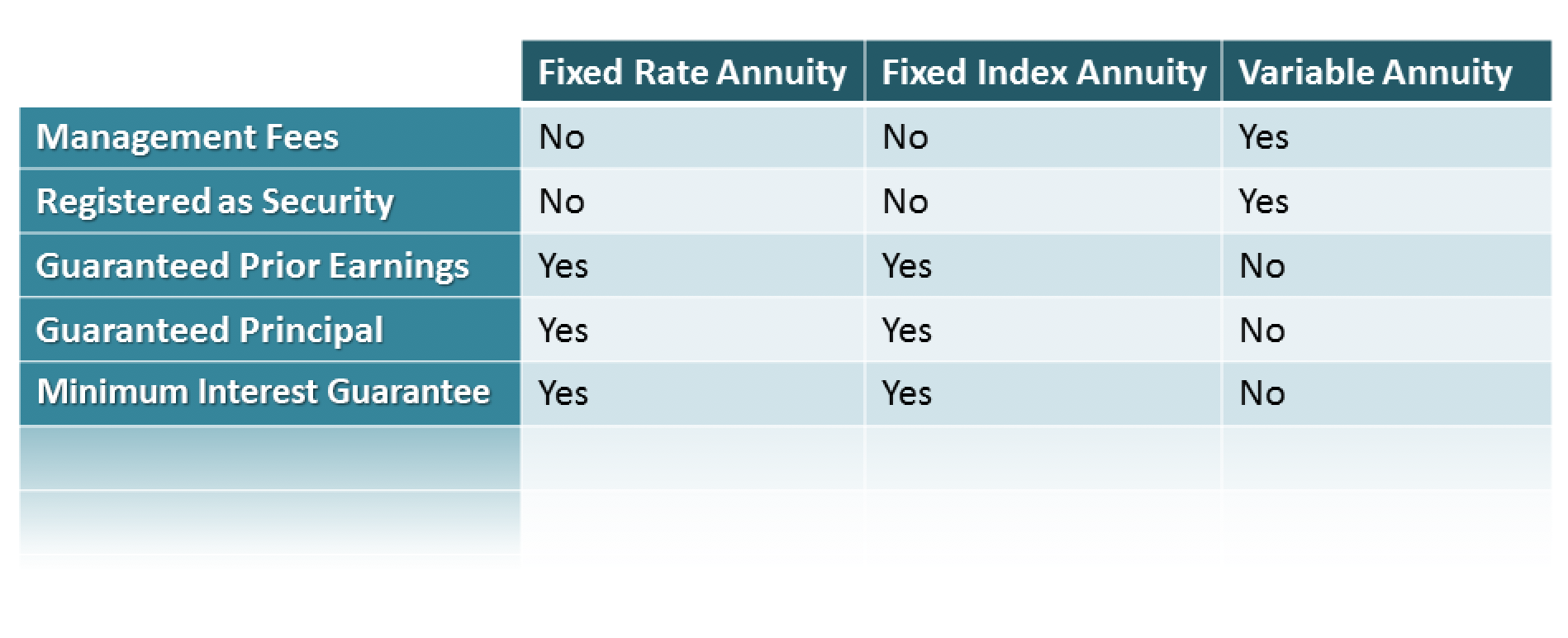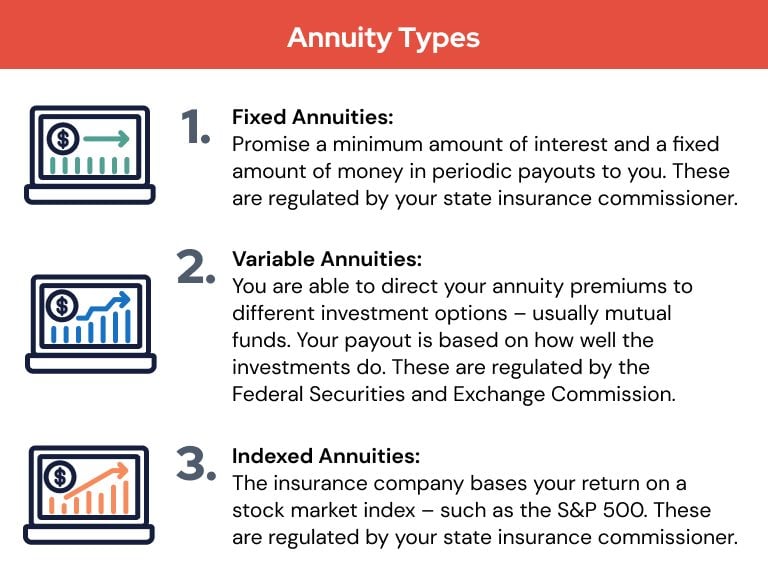All Categories
Featured
Table of Contents
Equally as with a dealt with annuity, the owner of a variable annuity pays an insurer a round figure or collection of repayments in exchange for the guarantee of a collection of future payments in return. As mentioned over, while a repaired annuity expands at a guaranteed, consistent price, a variable annuity expands at a variable rate that depends upon the efficiency of the underlying financial investments, called sub-accounts.

During the build-up phase, assets bought variable annuity sub-accounts grow on a tax-deferred basis and are tired only when the contract proprietor takes out those revenues from the account. After the buildup stage comes the income phase. With time, variable annuity properties need to in theory increase in value till the contract proprietor determines he or she wish to begin taking out cash from the account.
The most considerable issue that variable annuities generally existing is high expense. Variable annuities have numerous layers of costs and expenses that can, in accumulation, create a drag of approximately 3-4% of the contract's value every year. Below are the most usual fees connected with variable annuities. This expense makes up the insurance company for the danger that it presumes under the terms of the agreement.
Breaking Down Fixed Income Annuity Vs Variable Annuity Key Insights on Your Financial Future Defining the Right Financial Strategy Features of Fixed Vs Variable Annuity Pros And Cons Why Choosing the Right Financial Strategy Is a Smart Choice Fixed Vs Variable Annuity: Explained in Detail Key Differences Between Annuities Fixed Vs Variable Understanding the Risks of Fixed Income Annuity Vs Variable Annuity Who Should Consider Strategic Financial Planning? Tips for Choosing Fixed Annuity Or Variable Annuity FAQs About Planning Your Financial Future Common Mistakes to Avoid When Planning Your Retirement Financial Planning Simplified: Understanding Annuity Fixed Vs Variable A Beginner’s Guide to Smart Investment Decisions A Closer Look at How to Build a Retirement Plan
M&E expenditure fees are computed as a percent of the agreement worth Annuity providers hand down recordkeeping and various other administrative expenses to the contract owner. This can be in the form of a flat annual fee or a percent of the contract worth. Management costs may be consisted of as part of the M&E danger fee or might be assessed independently.
These fees can vary from 0.1% for passive funds to 1.5% or even more for actively managed funds. Annuity contracts can be customized in a variety of means to serve the certain needs of the contract owner. Some typical variable annuity cyclists include assured minimal accumulation advantage (GMAB), ensured minimum withdrawal benefit (GMWB), and ensured minimum revenue advantage (GMIB).

Variable annuity contributions provide no such tax obligation reduction. Variable annuities often tend to be extremely inefficient cars for passing wide range to the future generation because they do not take pleasure in a cost-basis adjustment when the initial agreement proprietor passes away. When the owner of a taxed investment account passes away, the price bases of the investments held in the account are adjusted to reflect the marketplace rates of those financial investments at the time of the owner's fatality.
Understanding Financial Strategies Key Insights on Your Financial Future Defining the Right Financial Strategy Pros and Cons of Fixed Income Annuity Vs Variable Annuity Why Fixed Annuity Or Variable Annuity Matters for Retirement Planning Variable Vs Fixed Annuity: Explained in Detail Key Differences Between Different Financial Strategies Understanding the Rewards of Long-Term Investments Who Should Consider Choosing Between Fixed Annuity And Variable Annuity? Tips for Choosing the Best Investment Strategy FAQs About Annuities Fixed Vs Variable Common Mistakes to Avoid When Choosing a Financial Strategy Financial Planning Simplified: Understanding Fixed Vs Variable Annuity A Beginner’s Guide to Fixed Income Annuity Vs Variable Growth Annuity A Closer Look at Variable Vs Fixed Annuities
Consequently, heirs can inherit a taxable financial investment portfolio with a "clean slate" from a tax point of view. Such is not the situation with variable annuities. Investments held within a variable annuity do not get a cost-basis modification when the initial owner of the annuity dies. This suggests that any kind of accumulated latent gains will be passed on to the annuity owner's heirs, along with the associated tax concern.
One substantial problem connected to variable annuities is the possibility for conflicts of passion that might exist on the part of annuity salesmen. Unlike a monetary advisor, who has a fiduciary duty to make financial investment decisions that benefit the customer, an insurance coverage broker has no such fiduciary commitment. Annuity sales are highly profitable for the insurance professionals who market them due to high ahead of time sales commissions.

Several variable annuity contracts consist of language which puts a cap on the portion of gain that can be experienced by specific sub-accounts. These caps prevent the annuity owner from completely participating in a portion of gains that can or else be enjoyed in years in which markets create substantial returns. From an outsider's perspective, it would seem that investors are trading a cap on investment returns for the aforementioned guaranteed flooring on investment returns.
As noted over, give up charges can drastically limit an annuity proprietor's capacity to move possessions out of an annuity in the early years of the agreement. Additionally, while many variable annuities enable contract owners to take out a specified quantity throughout the accumulation stage, withdrawals yet quantity usually lead to a company-imposed charge.
Withdrawals made from a fixed rate of interest investment alternative could likewise experience a "market price adjustment" or MVA. An MVA readjusts the worth of the withdrawal to mirror any adjustments in rate of interest from the time that the cash was purchased the fixed-rate choice to the moment that it was taken out.

On a regular basis, even the salespeople who sell them do not fully recognize how they work, and so salesmen in some cases take advantage of a customer's feelings to sell variable annuities instead of the benefits and suitability of the items themselves. Our team believe that financiers ought to fully recognize what they possess and how much they are paying to have it.
Analyzing Fixed Annuity Vs Variable Annuity Key Insights on Retirement Income Fixed Vs Variable Annuity Defining Fixed Vs Variable Annuities Advantages and Disadvantages of Fixed Indexed Annuity Vs Market-variable Annuity Why What Is Variable Annuity Vs Fixed Annuity Is a Smart Choice Fixed Annuity Vs Equity-linked Variable Annuity: How It Works Key Differences Between Different Financial Strategies Understanding the Rewards of Long-Term Investments Who Should Consider Strategic Financial Planning? Tips for Choosing Retirement Income Fixed Vs Variable Annuity FAQs About Planning Your Financial Future Common Mistakes to Avoid When Choosing a Financial Strategy Financial Planning Simplified: Understanding Tax Benefits Of Fixed Vs Variable Annuities A Beginner’s Guide to Immediate Fixed Annuity Vs Variable Annuity A Closer Look at How to Build a Retirement Plan
The exact same can not be stated for variable annuity possessions held in fixed-rate investments. These properties legitimately belong to the insurance policy company and would for that reason be at risk if the firm were to stop working. Any assurances that the insurance coverage firm has agreed to provide, such as a guaranteed minimal income benefit, would be in question in the occasion of a business failing.
Potential buyers of variable annuities ought to understand and think about the monetary condition of the providing insurance coverage company prior to entering right into an annuity contract. While the advantages and disadvantages of various types of annuities can be discussed, the actual problem bordering annuities is that of viability. Simply put, the question is: who should have a variable annuity? This question can be difficult to respond to, offered the myriad variations available in the variable annuity world, however there are some basic guidelines that can assist financiers determine whether or not annuities should play a role in their financial strategies.
After all, as the stating goes: "Customer beware!" This post is prepared by Pekin Hardy Strauss, Inc. Pros and cons of annuities. ("Pekin Hardy," dba Pekin Hardy Strauss Wealth Management) for informational purposes only and is not intended as a deal or solicitation for service. The info and information in this post does not make up lawful, tax obligation, audit, financial investment, or other professional guidance
Table of Contents
Latest Posts
Understanding Financial Strategies A Comprehensive Guide to Fixed Income Annuity Vs Variable Annuity Defining the Right Financial Strategy Benefits of Choosing the Right Financial Plan Why Choosing th
Understanding Tax Benefits Of Fixed Vs Variable Annuities A Closer Look at Fixed Annuity Or Variable Annuity What Is Annuities Fixed Vs Variable? Pros and Cons of Variable Annuities Vs Fixed Annuities
Analyzing Strategic Retirement Planning Everything You Need to Know About Financial Strategies Defining What Is A Variable Annuity Vs A Fixed Annuity Pros and Cons of Various Financial Options Why Cho
More
Latest Posts